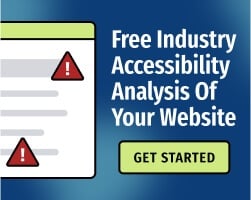October is National Disability Employment Awareness Month (NDEAM). NDEAM is a reminder and a celebration of the value and talents that people with disabilities bring to the workforce. It’s also an important opportunity to bring into the forefront the challenges and discrimination employees with disabilities sometimes face.
History of National Disability Employment Awareness Month
In 1945, Congress named the first week in October “National Employ the Physically Handicapped Week,” which was in response to the large number of service members with disabilities returning home from World War II. In 1962, the name changed to the broader “National Employ the Handicapped Week.” Since then, it has evolved into a month-long observance with a welcome new name.
The 2018 NDEAM theme is “America’s Workforce: Empowering All.”
To learn more, visit the US Department of Labor’s timeline of NDEAM and events in US disability employment history.
Does the Americans with Disabilities Act protect employees?
The Americans with Disabilities Act (ADA) was signed into law in 1990, prohibiting discrimination on the basis of disability in several areas, including employment and pre-employment. A formal commitment and a pivotal moment for the civil rights of people with disabilities, the ADA has been absolutely instrumental in the aspiration of equal access and equal treatment — in practice, while many companies are making diversity and inclusion a priority, there is still a long way to go to achieve workplace equality.
According to the US Department of Labor, people with disabilities are much less likely to be in the labor force. Roughly 79% of the population with a disability does not participate in the workforce, compared to 31% of the population without a disability.
Read: Common Web Accessibility Myths
Disability equality may be improving in large corporations
The 2018 Disability Equality Index (DEI) report, created as a joint project of Disability:IN and American Association of People with Disabilities (AAPD), is a “comprehensive assessment tool jointly designed by business leaders and disability advocates. The DEI helps businesses analyze their environment, identify opportunities and leverage disability inclusion as a competitive advantage.”
The fourth annual report, which includes participation from 145 corporations (a 32% increase year-over-year) and accounts for a total workforce of 7.8 million employees, had some highly-encouraging results, including:
- 62.7% of the participating companies earned a 100 rating — up from 22.5% in 2015.
- 99% of participating companies have a written diversity-and-inclusion statement.
- 87% of participating companies have “an officially recognized disability-focused Employee Resource Group (ERG) or Affinity Group.”
The report also identified some opportunity areas, such as:
- 55% of participating companies commit to digital accessibility externally and internally.
- 71% of participating companies have a public-facing mobile app, but only 34% have tested the app for accessibility.
Resources to help companies promote workplace equality
National Disability Employment Awareness Month will come and go, but hopefully it’s a nudge to strive for equality and accessibility all year, and to try to get better every year. Here are some resources to help:

